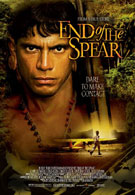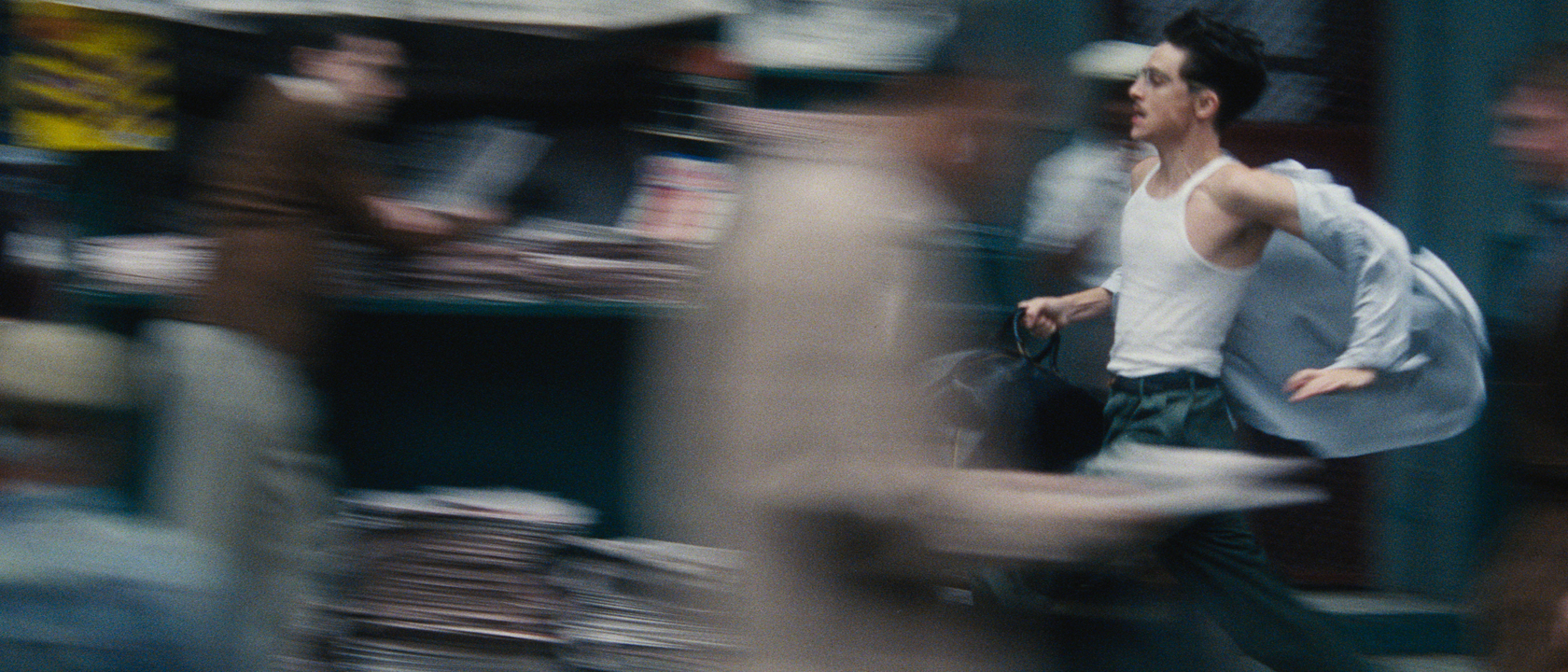Whether End of the Spear is at all appealing to a viewer comes down to a simple question of belief: does missionary work save a culture or obliterate it? Sociology dictates cultures must be studied within their own environment, without any sort of interference, to be properly appreciated and understood. By that sociological perspective, the film features the destruction of a native people of Ecuador, however the Christian missionaries within the movie (based on real-life people and events) see their work as saving the people, not destroying them. That simple difference in perspective will determine whether the movie tells a good story or a bad one.
I’ll be honest. I approached End of the Spear expecting a propagandist Christian missionary film. I will admit I was pleasantly caught off guard. The tale of five missionaries who were killed making contact with the mysterious Waorani tribe of Ecuador is surprisingly evenly delivered for the most part. Although the brutality of the savage natives is played with all the subtlety of D.W. Griffith’s Birth of a Nation, the film is willing to admit some blame on the missionary side of things as well. In their passion to save the Waorani from themselves mistakes were made, mistakes that led to the death of the missionaries, leaving their families behind to continue their work. A few outrageous comments aside, it isn’t until the last five to ten minutes that the film gets at all heavy handed, although at that point it puts on steel gauntlets and proceeds to beat the audience over the head with the importance of good-old Christian forgiveness, regardless of the beliefs and culture of the Waorani. The bulk of the movie, however, attempts to tell the story of the missionaries’ interaction with the Waorani without becoming preachy.
As a film, Spear’s big weakness comes from its dry characters who, despite excellent performances from several cast members, have no real depth to attach to. The movie is artistically beautiful, from most of the performances, to the stunning environment, to the entrancing musical score, but beauty is not enough. The missionary characters live quiet lives of devotion and understanding that omits any sort of real humanity and the Waorani aren’t given enough time to show their culture beyond the brutal ways the movie wants us to understand as being wrong. All of it is laid out by a far too peaceful narration from a character that was too young to understand what was going on around him and then absent for most of the years of change for the Waorani people (which means the real time of transition happens completely off camera). With such a flat story and bland characters the movie is almost like watching a documentary – apt since director Jim Hanon was also behind Beyond the Gates of Splendor, a documentary of the Waorani’s shift from savagery to peaceful existence. One has to wonder though, why retell the documentary in a narrative tale like Spear?
My suggested answer to that question is simple: exposure. With the loss of life of the men and women who endeavored to save the Waorani from themselves, End of the Spear becomes a tale of the sacrifice missionaries go through, giving the movie an element of natural drama. The fact that the missionaries were successful in ending the Waorani’s warlike ways gives the tale a happy ending to capitalize on. Essentially the story behind End of the Spear is a successful tale that shows the sacrifices these Christian soldiers are willing to go through for the greater good of another race. Which brings us back to the question that determines how much anyone will like this film: is it really for the good of the race? That’s a question that is never addressed by the film, not that I would expect it to be. This is, after all, a film financed in support of the Christian missionaries, so they are the good guys, regardless of the mistakes they may have made and the end results their actions may have upon native cultures.
The majority of the people who want to see End of the Spear will appreciate the work the missionaries depicted within have done and continue to do, and there will be no sociological quandaries to worry over. To that end the movie could have been recorded on 8mm film with no audio and the intended audience would most likely be content to see such a heroic Christian true story on screen. For those who need a bit more for their movie-going experience however, the movie is ultimately flat, although thankfully (and unexpectedly) short on any sort of overbearing message.
Your Daily Blend of Entertainment News

